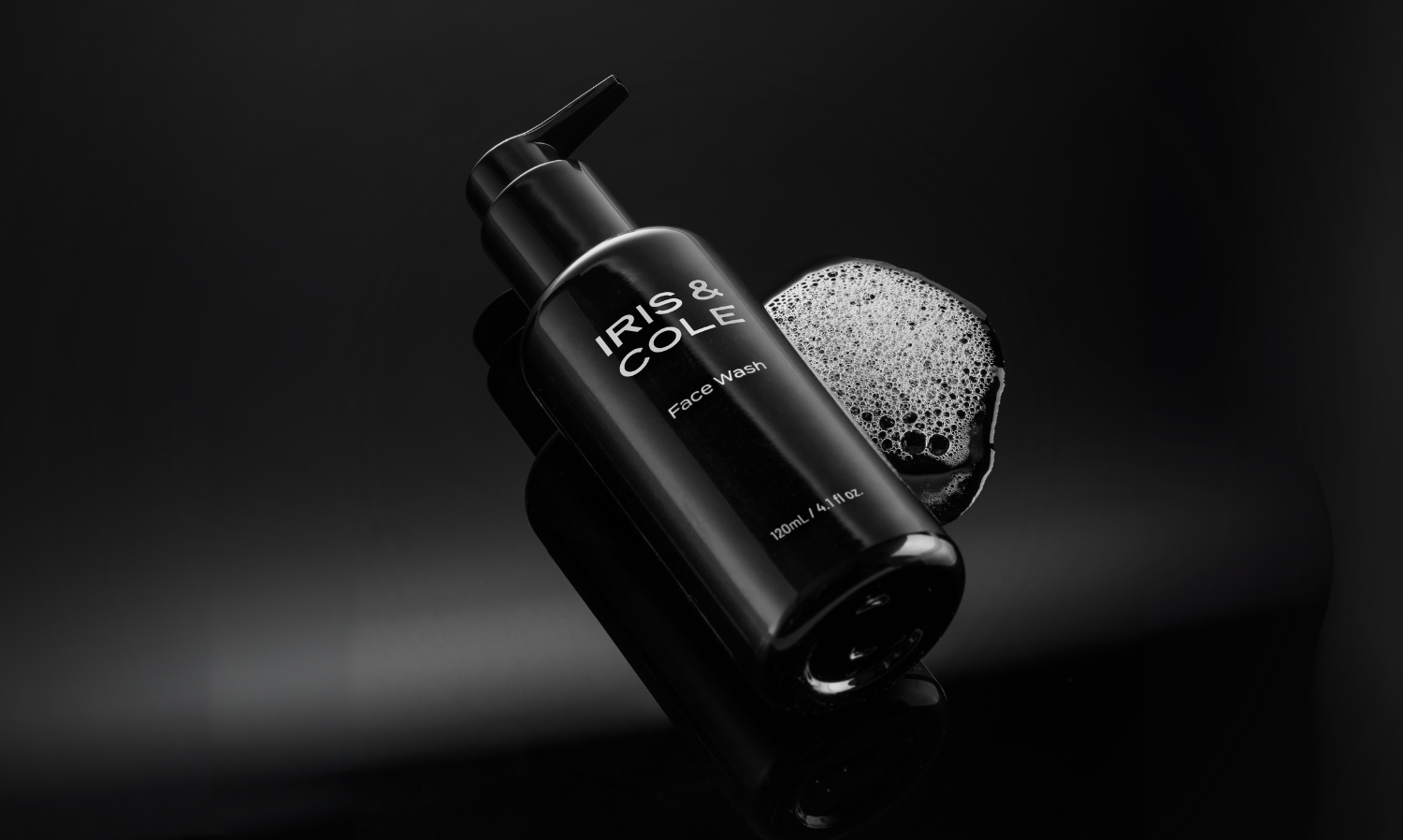
Get our new Face Wash FREE
Why Skincare Products in Europe Are Safer
At Iris & Cole, all of our products are formulated to ensure they adhere to the highest standards set by the European Union (EU). That means we only use ingredients that have been approved by EU regulatory bodies for use in skincare products. These ingredients have been thoroughly tested and evaluated for their safety. We don’t need to do this for our US products, but we choose to do it anyway — because it’s better for you, and better for the world.
Europe has a much higher bar for safety in personal care products
The EU bans or restricts over 1,300 chemicals in cosmetics and skincare products. In contrast, the US Food and Drug Administration (FDA) only bans 12 chemicals in cosmetics. Many harmful ingredients, like phthalates, parabens, and PFAS, are still legally allowed in US products.
Are these restricted ingredients in your skincare products?
Read the labels on your current skincare products. You’ll be surprised at how many synthetic chemicals there are in them, even those claiming to be “green” and “natural”. Here are some of the most harmful:
-
Phthalates are a group of chemical compounds often used as plasticizers in various consumer products. In cosmetics, they are primarily used to enhance flexibility, dissolve ingredients, and stabilize fragrances. They can act as endocrine disruptors, leading to lower testosterone, reduced sperm quality, and testicular dysfunction. The U.S. FDA does not currently ban phthalates in cosmetics, but certain states and advocacy groups push for stricter regulations.
-
Parabens are a class of synthetic preservatives widely used in skincare, cosmetics, and personal care products to prevent microbial growth and extend shelf life. Some of the most common parabens found in skincare and personal products include Methylparaben, Ethylparaben, and Propylparaben. These are others are banned in the EU due to concerns over endocrine disruption.
-
Benzophenones prevent product degradation from light exposure and protect the skin from UV rays. They have been linked to decreased sperm motility and altered hormone levels. They are highly restricted due to hormone-disrupting effects. You might find them called Oxybenzone, Sulisobenzone, and Cctocrylene. For sun protection, look for sunscreen with Zinc Oxide or Titanium Dioxide instead.
-
“Forever Chemicals” (PFAS) are synthetic chemicals used in cosmetics and skincare products for their water-resistant, long-lasting, and smoothing properties. They can decrease sperm quality, cause testicular toxicity, and disrupt endocrine function. They are banned under stricter environmental and consumer health policies. You might find them called Polytetrafluoroethylene (PTFE), Perfluorodecalin, or Methicone.
-
Triclosan is an antimicrobial agent often used in skincare and personal care products. It can impair testosterone production and negatively impact sperm health. The EU has banned it due to its endocrine-disrupting properties. The US banned triclosan in antibacterial hand soaps (2016) but still allows it in toothpaste and some cosmetics!
Our Formulations have been certified safe by an EU Laboratory
Our product formulations have been evaluated and certified to comply with EU regulations by Oxford Biosciences. Why does this matter?
-
Ingredient Testing: EU mandates pre-market safety assessments for cosmetics, whereas in the US, cosmetics can be sold without FDA approval.
-
Label Transparency: EU regulations require clearer labeling of potential allergens and harmful ingredients.
-
Consumer Advocacy: EU policies prioritize public health, requiring manufacturers to justify the necessity of certain chemicals.
Further Reading:
Phthalates and Male Reproductive Health:
-
European Chemicals Agency (ECHA) on phthalates:
https://echa.europa.eu/hot-topics/phthalates -
Endocrine Society on phthalates and their effects:
https://www.endocrine.org
Parabens and Male Reproductive Health:
-
NIH study on parabens affecting hormonal secretion and male fertility:
https://pubmed.ncbi.nlm.nih.gov/12419695/ -
EU regulation on banned parabens (Annex II):
https://eur-lex.europa.eu/legal-content/EN/TXT/?uri=CELEX:02009R1223-20160812
Benzophenones (e.g., Oxybenzone) and Hormonal Disruption:
-
Research on endocrine-disrupting effects of benzophenones:
https://www.europarl.europa.eu/RegData/etudes/STUD/2019/608866/IPOL_STU(2019)608866_EN.pdf
Per- and Polyfluoroalkyl Substances (PFAS):
-
Impact of PFAS on reproductive health:
https://www.frontiersin.org/articles/10.3389/fendo.2021.706532/full -
EU plans to ban PFAS in consumer products:
https://www.reuters.com/business/environment/eu-plans-ban-forever-chemicals-consumer-products-2025-01-20/
Triclosan:
-
Endocrine-disrupting properties of triclosan:
https://www.europarl.europa.eu/RegData/etudes/STUD/2019/608866/IPOL_STU(2019)608866_EN.pdf -
EU ban on triclosan in cosmetics:
https://eur-lex.europa.eu/legal-content/EN/TXT/?uri=CELEX:02009R1223-20160812
General Studies on Endocrine-Disrupting Chemicals:
-
“Endocrine Disrupting Chemicals and Reproductive Health in Boys and Men” (2021):
https://www.frontiersin.org/articles/10.3389/fendo.2021.706532/full -
“Endocrine Disrupting Chemicals and Male Fertility: From Physiological to Environmental and Industrial Factors” (2023):
https://pmc.ncbi.nlm.nih.gov/articles/PMC10598475/ -
“Endocrine Disruption and Male Reproductive Disorders: Unanswered Questions and Future Directions” (2023):
https://academic.oup.com/humrep/article/39/9/1879/7699900 -
“Endocrine Disrupting Chemicals and Impact on Male Reproductive Health” (2018):
https://tau.amegroups.org/article/view/19857/html -
“Endocrine‐Disrupting Chemicals and Male Reproductive Health” (2019):
https://onlinelibrary.wiley.com/doi/full/10.1002/rmb2.12326



